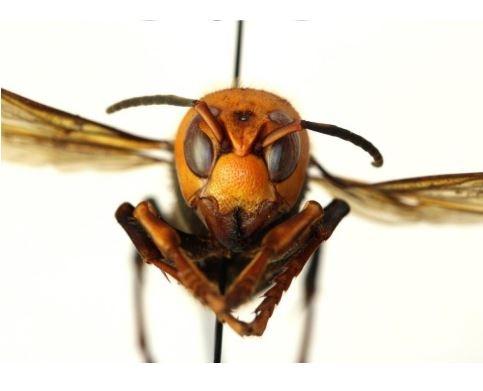SKIPPACK, Pa. (WLVT) - People have been buzzing about an insect nicknamed the ‘’Murder Hornet’’ over the last few days.
While the name may sound alarming, entomologist Michael Skvarla says to not let it bug you.
''I would not worry about them showing up in Pennsylvania anytime soon,'' said Skvarla, an assistant research professor at the Department of Entomology at Penn State University.
He says the bugs, called Asian giant hornets, are native to Japan and were spotted in Washington state back in December.
''They’ve only been found in a couple of places in British Columbia, around Vancouver and in Washington state,'' said Skvarla, who is not convinced that the insect will spread across the U.S. as prolifically as the spotted lanternfly.
''It has a lot to do with their biology,'' said Skvarla. ''The only dispersal they have is when queens move about in the spring before they find a new nest. After that, the nest is static and the workers go out and come back to the nest.''
PREDATOR OF HONEY BEES
He says the Asian giant hornet is a honey bee predator.
''They target honey bees in the fall because that’s when they’re raising the next generation of reproductive hornets,'' said Skvarla. ''So, there’s a big strain for protein on the colony and the bees are an easy protein source.''
That's one reason why Scott Famous of the Montgomery County Beekeepers' Association of Pennsylvania is keeping an eye on the bug.
''Certainly, it warrants keeping an eye on,'' said Famous, who has been a Skippack-based beekeeper for over 20-years. ''Hopefully, the folks in Washington state are on their game and on top of this and taking it very seriously. I love my bees, and I’m very concerned for beekeeping in general. There are different elements in the environment that make it very difficult for honey bees to survive. Some of it’s pollution-based and some of it is related to a parasite that the honeybees can carry.''
STEER CLEAR OF STINGS
Skvarla says some Asian giant hornets can reach lengths of nearly two inches with stingers about a quarter of an inch long.
''Asian giant hornets are among the biggest wasps in the world,'' Skvarla explained, ''and because they’re big, they deliver a large quantity of venom. The stings have been likened to being hit with a red-hot thumbtack. I would not want to be stung by one of these!''
He stressed that while the Asian giant hornets venomous stings can be deadly to humans, only a small number of fatalities have been reported.
''The New York Times story said that Asian giant hornets kill 50 people a year. To put that into perspective, between 40 and 150 may be killed each year in the United States by bees, wasps and other stinging insects,'' said Skvarla. ''So, they’re probably no more deadly than the insects we have here, it’s just that some people are allergic and when they’re stung, they have bad consequences.''
REPORT SIGHTINGS
He says extension offices across the U.S. will exterminate any Asian giant hornet colonies that pop up.
''If you think you see one, contact your local extension office or an entomologist,'' Skvarla stressed. ''If someone hadn’t done that with these ones, we still would not know that they’re on the West Coast.''



